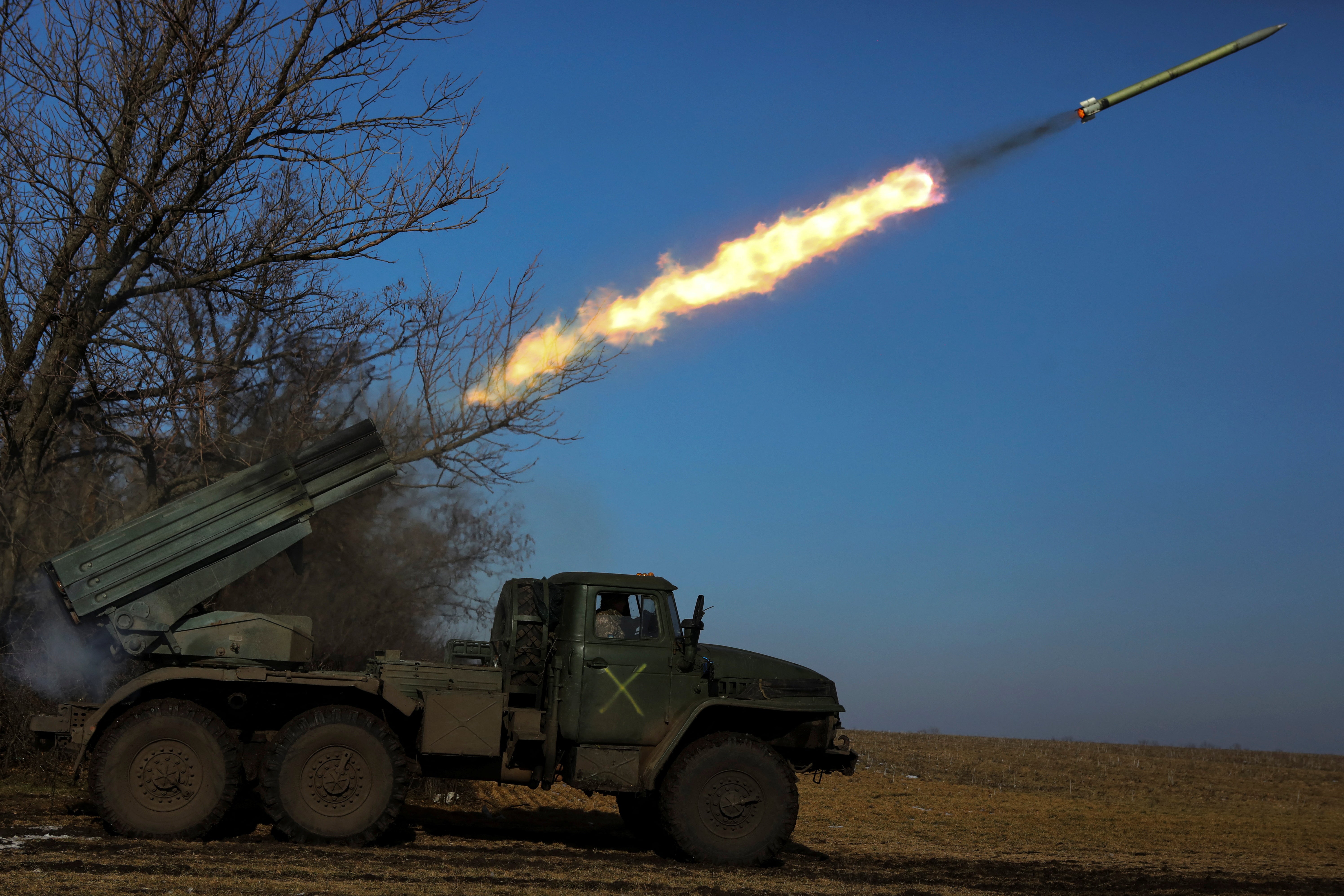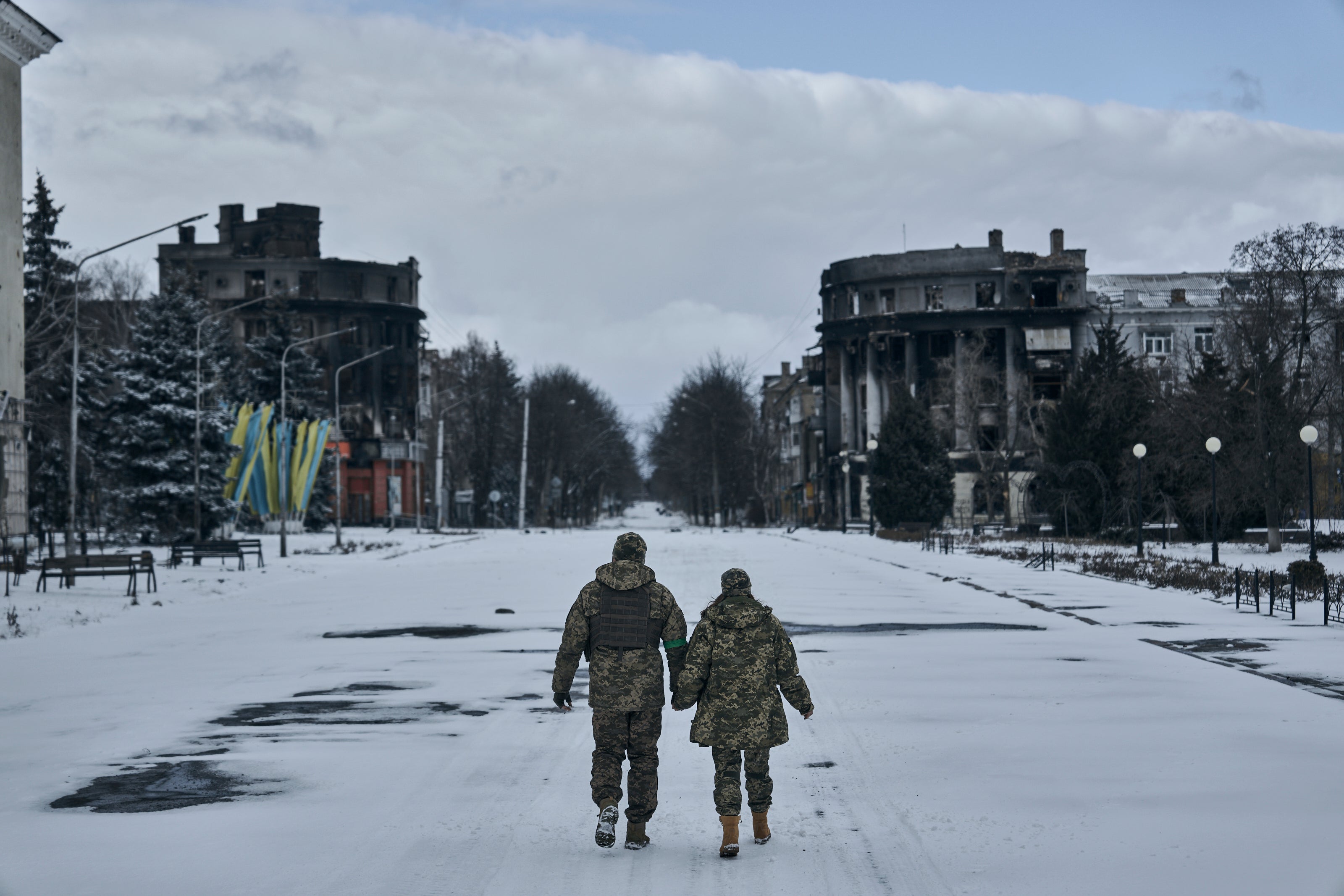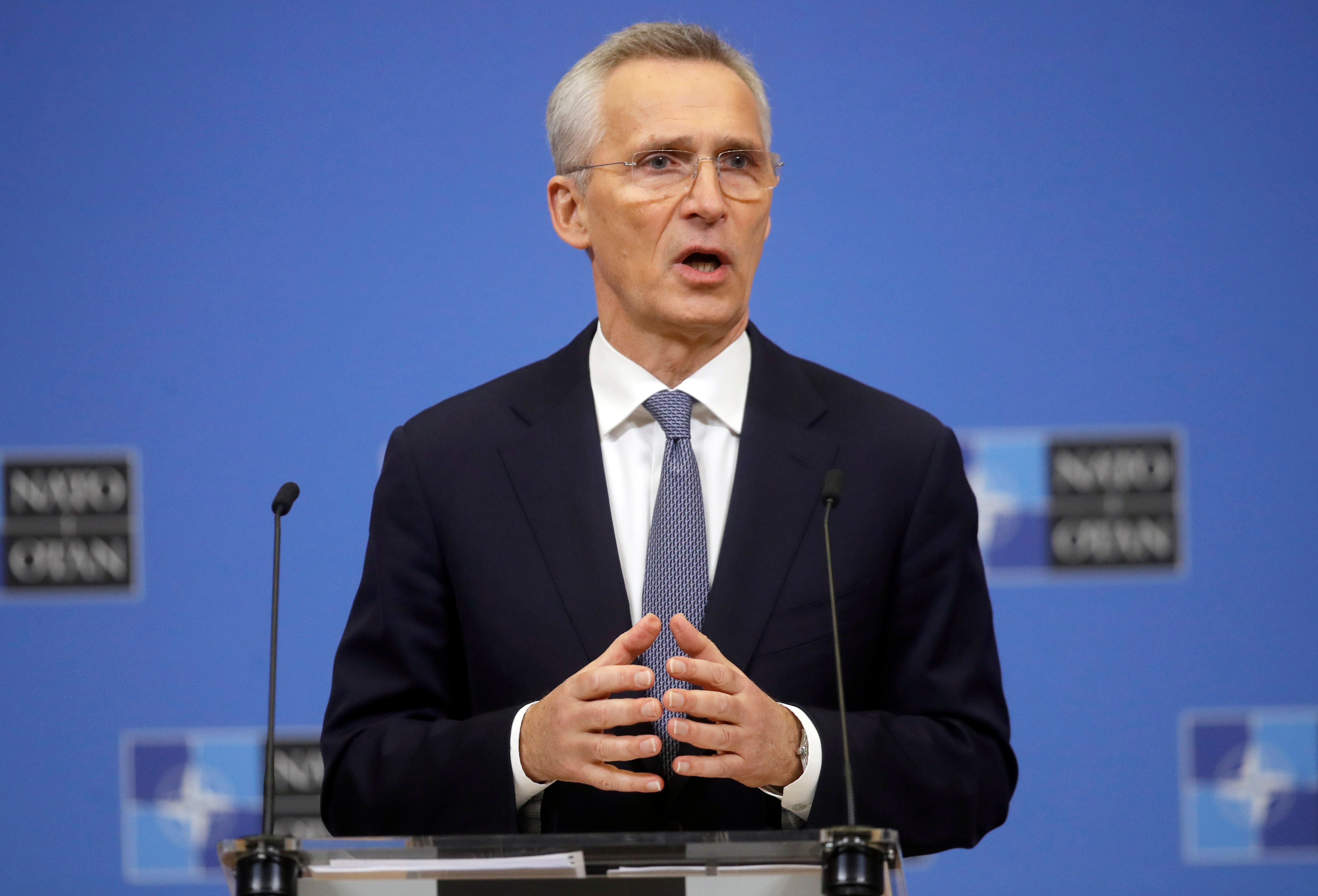Russia’s major new spring offensive in Ukraine has already begun, Nato warns
Vladimir Putin clearly not ‘preparing for peace’, says Nato chief, as attacks reported across frontlines
Your support helps us to tell the story
From reproductive rights to climate change to Big Tech, The Independent is on the ground when the story is developing. Whether it's investigating the financials of Elon Musk's pro-Trump PAC or producing our latest documentary, 'The A Word', which shines a light on the American women fighting for reproductive rights, we know how important it is to parse out the facts from the messaging.
At such a critical moment in US history, we need reporters on the ground. Your donation allows us to keep sending journalists to speak to both sides of the story.
The Independent is trusted by Americans across the entire political spectrum. And unlike many other quality news outlets, we choose not to lock Americans out of our reporting and analysis with paywalls. We believe quality journalism should be available to everyone, paid for by those who can afford it.
Your support makes all the difference.Russia has started its major offensive in Ukraine, the head of Nato said, with the eastern city of Bakhmut among the areas enduring heavy artillery fire.
Bakhmut is a prime objective for Russian president Vladimir Putin and its capture would give Russia a new foothold in the Donetsk region. Both Donetsk and Luhansk make up the Donbas, Ukraine's industrial heartland now partially occupied by Russia.
“The reality is we have seen the start [of a Russian offensive] already because we see now what Russia does now – President Putin does now – is to send thousands and thousands more troops, accepting a very high rate of casualty,” Nato’s secretary general, Jens Stoltenberg, said.
“We see no sign whatsoever that President Putin is preparing for peace,” Mr Stoltenberg told a press conference in Brussels ahead of a two-day meeting of Nato defence ministers starting on Tuesday.
Russia is still set on gaining control of Ukraine through force, he said, adding: “We see how they are sending more troops, more weapons, more capabilities.”
The Russian assault on Bakhmut has been spearheaded by mercenaries of the Wagner group, who have made small but steady gains. The renewed Russian bombardments made the situation there even more acute.
“The city, the city’s suburbs, the entire perimeter, and essentially the entire Bakhmut direction and Kostyantynivka are under crazy, chaotic shelling,” Volodymyr Nazarenko, deputy commander of Ukraine’s Svoboda battalion, told Reuters. Mr Nazarenko said that although no fighting was taking place in the city centre right now, the defenders were prepared to meet any assault.
“The city is a fortress, every position and every street there, almost every building, is a fortress,” he said.

Earlier on Monday, the Kremlin’s defence ministry said its troops had pushed forward two kilometres west along the frontlines, without specifying exactly where in a war zone that encompasses several regions in Ukraine’s south and east.
The Ukrainian military reported Russian shelling all along the frontline and said 16 settlements had been bombarded near Bakhmut. It said that over the past day, Ukraine’s forces had repelled a number of attacks near Bakhmut as well as assaults in Kharkiv, Luhansk and Zaporizhzhia regions.
In Luhansk, Russian troops pulled back after several days of intense fighting near the key city of Kreminna, although they’re not “running out of steam”, the Luhansk governor, Serhii Haidai, said.

In the partially occupied southern region of Kherson, artillery fire hit more than 20 cities and villages over the past 24 hours including the regional capital of the same name which was recaptured by Ukrainian forces in November. Two men were killed in one of the villages when their car ran over a landmine.
Satellite images released by private space technology company Maxar showed intense fighting in the Vuhledar area of Donetsk between 8 and 10 February.
The United Nations’ human rights office said on Monday that it had recorded 7,199 civilian deaths and 11,756 injured since the start of the invasion on 24 February, mostly from shelling and missile and air strikes. However, it believed the actual figure was far higher.
Ukraine said it was ready to defend itself from Russia’s latest push but has been urging Western allies to quickly reinforce its frontline forces with fighter jets and long-range missiles.
Mr Stoltenberg said Nato will increase targets for stockpiling ammunition as Kyiv is burning through shells “many times” faster than Western countries can produce them, which has left allied stocks badly depleted.

President Volodymyr Zelensky spent two days last week touring Europe to take his appeal to various national leaders directly, drawing positive movements towards the supply of jets despite allies’ reservations.
Mr Stoltenberg said he expected Nato defence ministers to consider the plea for aircraft at this week’s summit.
“There is now a discussion going on also on the question of aircraft and I expect that also to be addressed tomorrow at the meeting in Brussels,” he said, adding that Ukraine needs urgent support on the ground.
Mr Stoltenberg also stressed that supplying fighter jets to Ukraine would not make Nato part of the conflict, after Russian warnings that it would be an “escalation” of Western involvement in the war.
It comes as Norway’s three security services said Russia is the main security threat for all of Europe and will remain so for a long time. “Russia today poses the biggest threat to Norwegian and European security, and the confrontation with the West will be long-lasting,” said the country’s defence minister, Bjørn Arild Gram, having been presented with annual assessments from the three agencies.
Elsewhere, Moldova’s president Maia Sandu has outlined what she has described as a plot by Moscow to use “external saboteurs” to overthrow her country’s government – a plan which could involve “attacks” on state buildings and the taking of “hostages”.
President Sandu said the plot is intended to put Moldova “at the disposal of Russia” and derail its aspirations to one day join the European Union.
“The plan for the next period involves actions with the involvement of diversionists with military training, camouflaged in civilian clothes, who will undertake violent actions, attack some state buildings, and even take hostages,” Ms Sandu said.
There was no immediate reaction from Russian officials to Ms Sandu’s claims, but the Kremlin has previously denied wanting to intervene in Moldova.




Join our commenting forum
Join thought-provoking conversations, follow other Independent readers and see their replies
Comments